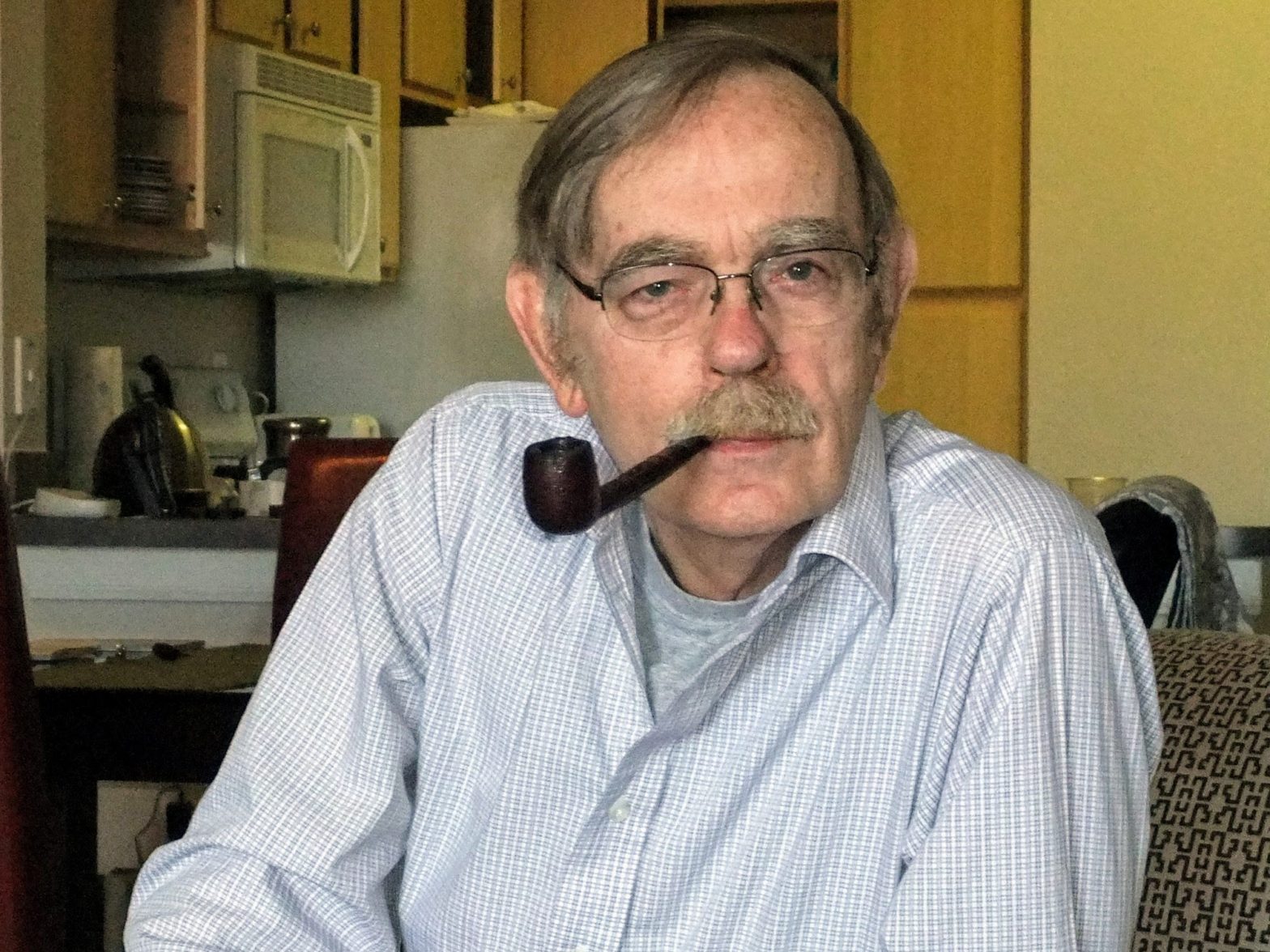August 2022 Obituary and Announcements
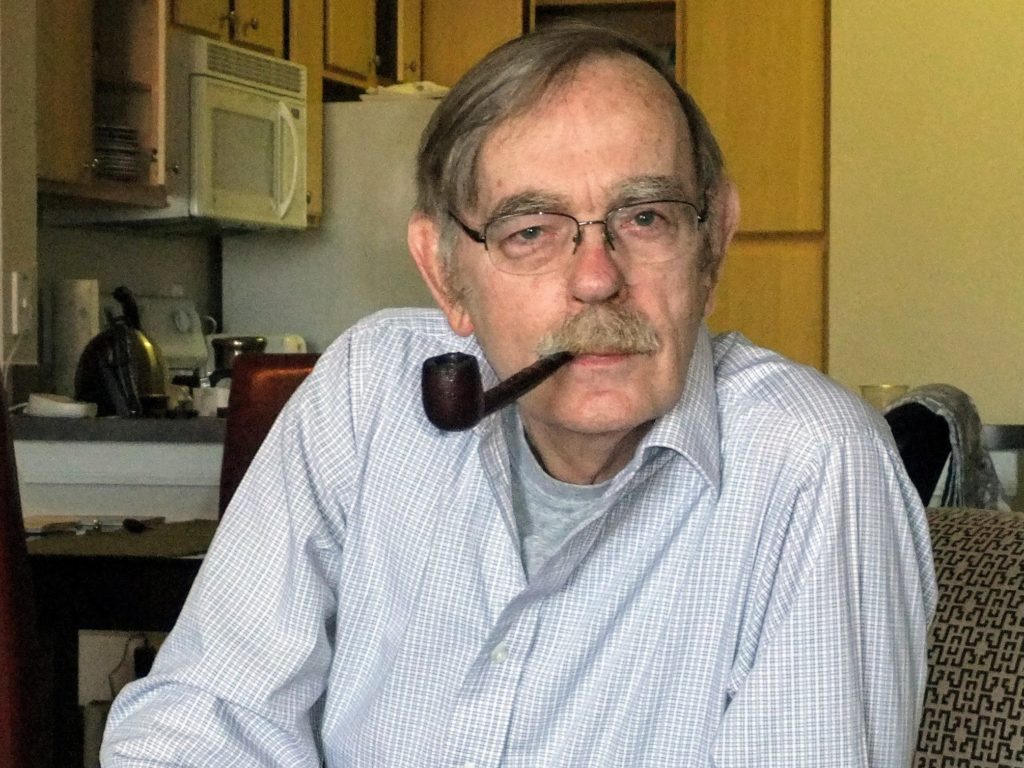
“When is it reasonable to believe something?“
Larry Laudan, philosopher and historian of science and epistemologist of law, died on August 23 2022. He was 80 years old.
Larry never forgot the joy of discovering astronomy. He was 11 years old and his family had recently moved to Dallas, Texas. Dale Dodd, a classmate invited Larry to join him in grinding telescope lenses and observing the solar system and stars. As he marveled at how observations collected in one small part of the solar system could be used to reason to general theories, a way of thinking that would inform a lifetime opened to Larry.
Larry was born in Austin, Texas in 1941. As a small child, his mother moved him time and again to be near his father’s naval base or, when his father was posted to the south Pacific, to be near family. After the war, the family settled for a few years in the small Texas town of Brady where the well-watered east gives way to the dust and mesquite of the west. His father began a career in insurance though his mother’s work in early childhood education was still years in the future. The year’s high point was the September goat barbeque with its armadillo-bagging competitions. A great place for a small child to run free, Larry said, but he was glad they left for Dallas when they did.
By the time Larry was in high school, the family was living in Kansas City. High school debate team was another game changer. Larry had to replace his broad Texas accent with something more acceptable, instructed the coach. His sister Marilyn, ten years younger, remembers Larry pacing round the basement, mirror in hand, working on his voice. Words both spoken and written, Larry grasped, were a powerful tool worth mastering.
With a BA in physics from the University of Kansas in hand, Larry set off with his new wife Bonnie to embark on a career in science at Princeton. He quickly found that it was philosophers and historians of science who most directly addressed the problem that he had caught a glimpse of back in Dallas: when did evidence justify belief in a theory. By now he appreciated just how fallible and changeable even the most seemingly well-established beliefs could be. In the seventeenth century, figures such as Galileo, Descartes and Newton had overturned conventional wisdom in astronomy, optics, and mechanics. How they had justified these changes in belief formed the subject of his dissertation. For Larry, the study of knowledge (epistemology) was never a matter of abstract philosophy. It had to be grounded in past and present practice.
For the rest of his life, Larry poured out papers and books: from the 1970s to the 1990s on evidence and theory in science; from the 2000s until shortly before his death, on evidence and verdicts in criminal law. Comparing science and law, two of the great institutional systems devoted to discovering truth, shed new light on both, he found. When Larry was asked if fraud in science and corruption in the law were not bigger threats to reasonable outcomes than were flawed methods, he retorted that even if these problems could be minimalized, as long as methods were flawed, errors would be made.
By the normally rather sedentary standards of academia, Larry moved a lot. He finished the research for his Ph.D. in Cambridge, England before taking a position at University College London. In 1969, he moved back to the United States to the University of Pittsburgh, then rapidly becoming a powerhouse in philosophy with an emphasis on philosophy of science. With the help of Adolf Grunbaum, he founded the Department of History and Philosophy of Science and with Gerd Buchdahl founded and edited the journal Studies in History and Philosophy of Science. Later he succeeded Adolf as Director of the Center for Philosophy of Science.
In 1981, Larry moved to Virginia Tech with his second wife Rachel, a historian of science. For fifty years they were to enjoy a wonderfully harmonious, happy, and mutually supportive partnership, even if Larry was always a bit baffled by Rachel’s choice of the history of geology, technology, and later food, rather than the hard sciences, as research topics. In 1987 they took positions at the University of Hawaii. Friends joked that the two of them would idle away their days on palm-lined beaches. Instead as Larry and Rachel discovered, understanding the human and environmental complexity of the islands proved a fascinating challenge.
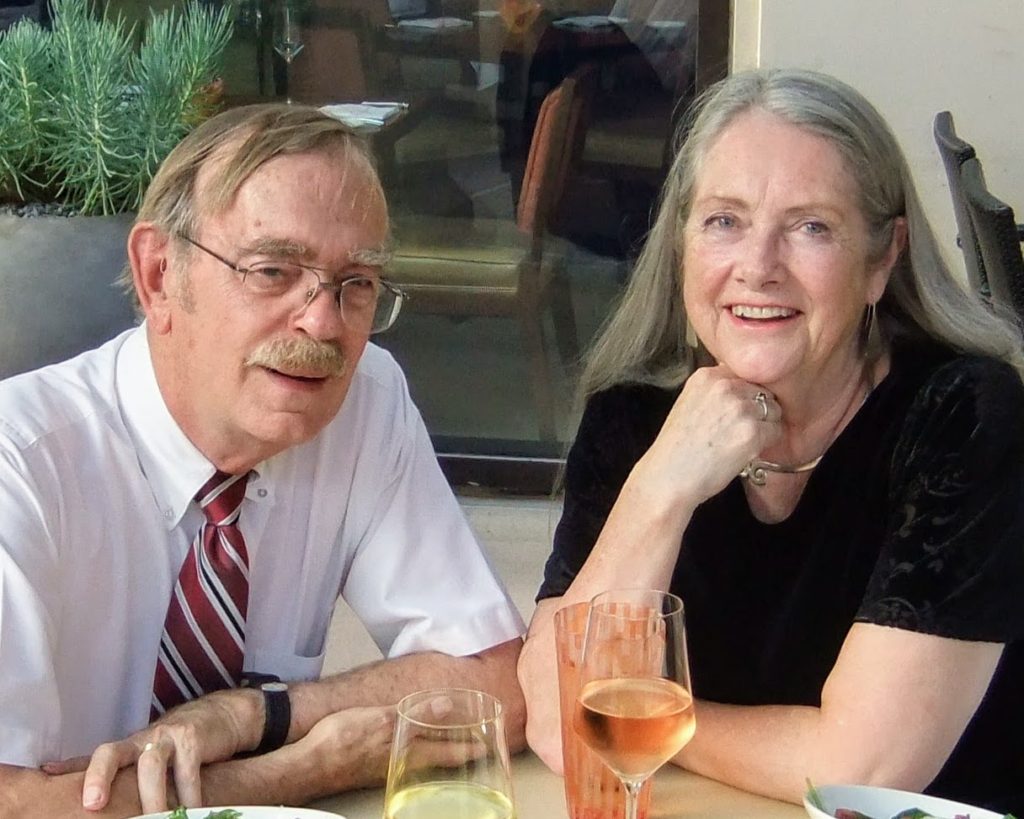
In the mid 1990s, while on a sabbatical in Princeton, Larry and Rachel looked at each other and realized that they’d spent all their conscious years in educational institutions, half of them teaching in universities. They’d loved the academic life. They were both full professors, were or had been department chairs, had enjoyed teaching, had research projects they loved supported by NEH, NSF, Fulbright and the like. And Larry was President-Elect of his professional society, the American Philosophical Association Pacific Division.
Time to try something other than academia and make room for younger scholars, they decided, especially since Heather and Kevin, Larry’s children by his first wife, were now grown and independent. Larry and Rachel pondered where they might go that would be affordable, stimulating, not as far from family as Hawaii, and with a language they had a shot at mastering. Mexico, they knew from prior visits to give talks at the National Autonomous University of Mexico (the UNAM), ticked all these boxes. Mexico City, though, seemed a bit of a stretch until they had learned Spanish. Instead they opted for Guanajuato, a beautiful colonial city a couple of hundred miles north of Mexico City, capital of the eponymous state, seat of a university, and site of the largest cultural festival in Latin America.
For a couple of years, Larry took a breather from research, concentrated on getting to know Mexico and learning Spanish. When friends, most of them fluent English speakers, began speaking to him in Spanish instead of English, he knew he was on his way. It had also become evident that both were intellectuals to the core. Never were they going to sit back and retire, or start businesses, or any other of the projects that they had contemplated on leaving American academia.
Larry, now well on the way to turning himself into a legal epistemologist (as he described himself), accepted a position in the Philosophical Research Institute at the UNAM. They moved to Chimalistac, an idyllic area in the south of Mexico City just north of the University. With a visiting position in the University of Texas Law School, Larry started publishing on evidence, procedures, and standards of proof in law, often with his friend Ron Allen, Wigmore Professor of Law at Northwestern University. As Larry became part of a network of like-minded researchers that stretched across Latin America, Europe, and the United States, he relished the chance to compare and contrast the strengths and weaknesses of common law and Roman law.
Institutional as well as intellectual work had to be done to promote the fledgling disciplines of both history and philosophy of science and of legal epistemology so that throughout his career Larry carried a load of administration. This and his teaching he managed to do in the afternoon. Luckily able to keep processing research questions subconsciously, at 11 at night he finally sat down to write, accumulating a tidy pile of typing by 3 in the morning when he turned in to sleep until the middle of the following day.
This schedule gave him plenty of leisure. Although as Heather puts it, he was not like other dads, he was a proud father who his loved his part in raising his children. They remember evening games of pool; playing with the TRS-80 computer he acquired as soon as it was available in 1977; outfitting fresh and salt water aquaria; gazing through his telescopes; singing along as he strummed enthusiastically if not expertly on his guitar, banjo, and dulcimer; playing with the sequence of dogs; and strategy games that advanced from chess and Risk to boards and computers.
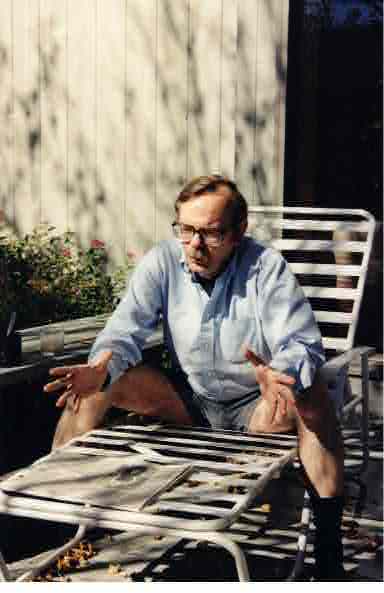
Conversation about philosophy or about politics, with family, friends, students or colleagues was a joy. Rachel’s patient explanations of the value of small talk in oiling social interaction fell on deaf ears. Pipe in one hand, often enough beer in the other, Larry leaned forward to plunge into debate. What could be more fun and more helpful in clarifying ideas than a long encounter between two reasonable people who disagreed, he thought, unaware that anyone might find this daunting. Thanks to the wonder of free international calls, Larry resumed conversations with the childhood friend Dale Dodd, by then a prominent Jungian psychotherapist in Australasia. And teaching, at which he excelled, was another chance to probe and clarify ideas with others.
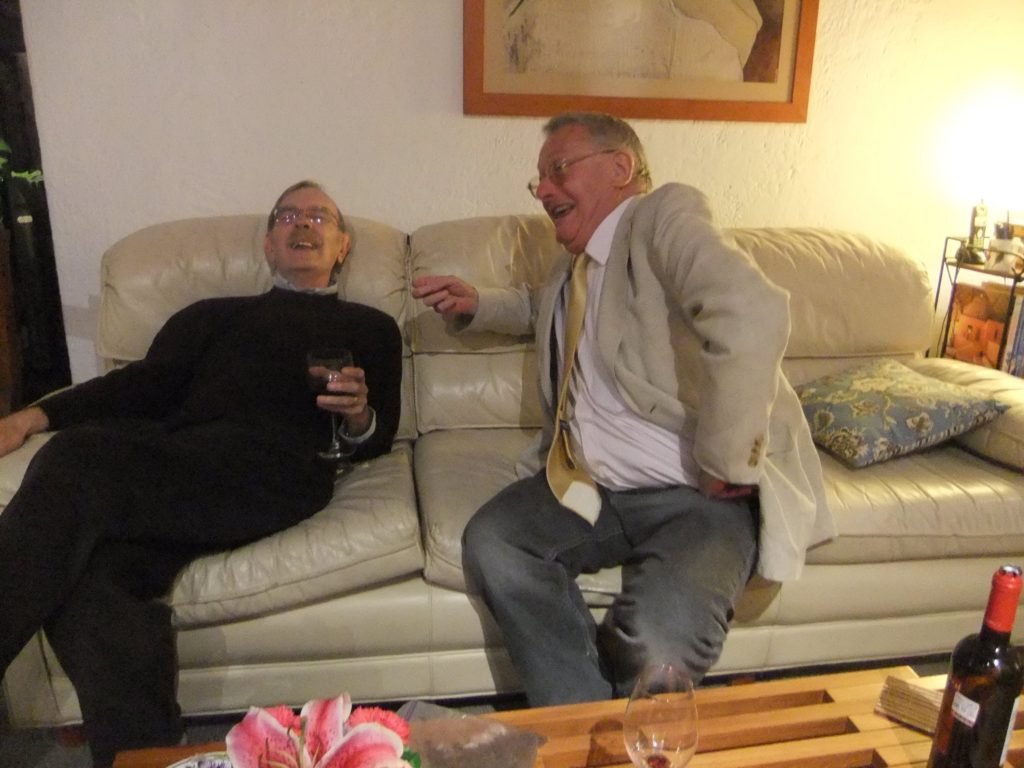
After fifteen years in Mexico, Larry and Rachel returned to the United States, first to Austin, Texas, then to Lexington, Kentucky, home to Heather and Kevin and their families. Larry was finding it harder and harder to find the words, ever more difficult to connect the thoughts. Visits with his sister Marilyn, his brother Ken and his grown children were balm. But the world was becoming blurry and the shadows drawing in. In the dead of the night of 23rd August 2022, with Rachel by his side he died a peaceful death.
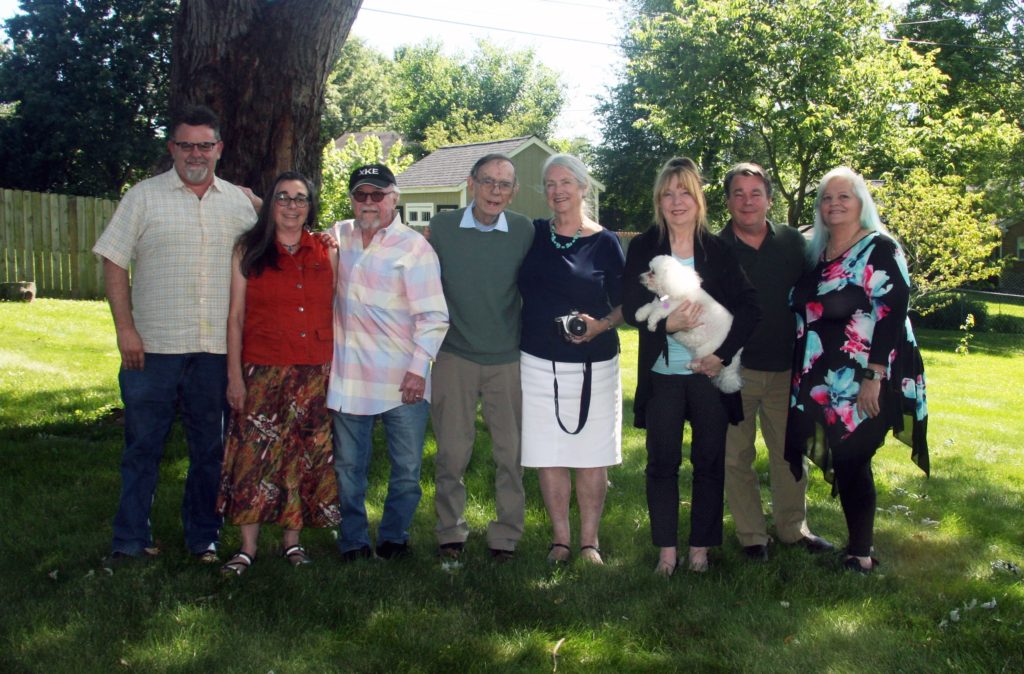
Had all those words, spoken and written, all those arguments laid out in articles and books been worth it? Larry would have said a resounding yes. It was an honor to have added his bit to the long human endeavor to improve the methods of reaching reasonable beliefs. And besides, it had never been a labor. He had enjoyed every minute of it.
_________________________
Larry is survived by his wife Rachel; his daughter and son-in-law Heather and Scott Clark; his grandchildren, Shay and Ciel; his son and daughter-in-law Kevin and Monee; his sister Marilyn Bollinger and his brother Ken Laudan and three nieces; and his first wife Bonnie Stanley Laudan.
The family wish to recognize those who supported Larry at the end of life. The staff of Bluegrass Care Navigators, Caring Hands and The Breckinridge were uniformly capable and kind. Special thanks go to Danyale Ball, Matthew Brown, Lisa Ecton, Laurel Le Forest, Valerie Howard, Beth Mosier, Kristin Pack, Melonie Weiss, and most especially June Jefferson.
Because Larry only recently moved to Lexington, Kentucky after a career that spanned three continents, our first move is to set up this website for the far-flung network of colleagues, students, friends and family. If we later decide on a memorial gathering of some kind, we will notify all of you in a position to attend.
Donations to Bluegrass Care Navigators, a wonderful nonprofit agency that offers palliative, hospice and other care for extreme situations across rural and urban Kentucky. Their staff (nurses, doctors, volunteers, social workers, CNAs) greatly eased Larry’s last three years.
- Personal remembrances of Larry
- Photo gallery
- View or share comments on Larry as philosopher of science and law
___________________________________
Rachel Ankeny, Editor-in-Chief of Studies in History and Philosophy of Science, wrote to say that this had been posted on the journal web site.
9 September 2022
Larry Laudan
It is with great sadness that we announce Larry Laudan, Co-founding Editor of Studies, has passed away.
Larry had a long and influential academic career in philosophy and history of science. He founded and edited the journal in 1969 and played a huge part in helping establish Studies as a home for innovative research.
Larry’s full obituary can be accessed at this link here: https://larrylaudan.com/larry-laudan/obituary/
We have also made a number of Larry’s articles free to access, which can be found at the links below:
Problems, truth, and consistency (1982): https://www.sciencedirect.com/science/article/pii/003936818290005X
Conceptual problems re-visited (1988): https://www.sciencedirect.com/science/article/pii/0039368188900143
Thoughts on HPS: 20 years later (1989): https://www.sciencedirect.com/science/article/pii/0039368189900307
The re-emergence of hyphenated history-and-philosophy-of-science and the testing of theories of scientific change (2016): https://www.sciencedirect.com/science/article/pii/S0039368116300267
